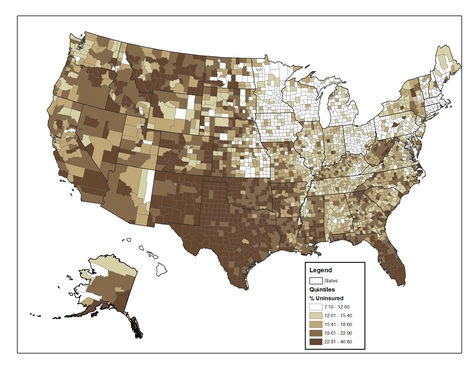Industry commits to comparative effectiveness

Insurers, drug companies and other market players got this number by estimating what current health care inflation is doing to costs, then promising to shave that inflation by 1.5%.
How they got the number is not as important as the fact they offered a number. (Picture from the blog The Monkey Cage.)
The significance is that this is twice what the President estimates it will cost to extend coverage to the uninsured. Advocates on both sides will cite it as meaningless, but it's proof the industry wants to be seen as being in the reform camp.
While some think the number was pulled from the air, it was likely pulled from the work of Dr. Ralph Snyderman, now helming Proventys, which is building "virtual decision trees" to guide best practices and deliver the kinds of savings he was able to achieve at Duke.
All of which means industry and government have joined together in believing that comparative effectiveness can be made to work at the point of care, and committed to moving toward it.
This also means the insurance industry is off the Frank Luntz reservation. The long-time Republican "language czar" is pushing a strategy of supporting the concept of reform while rejecting specifics, including comparative effectiveness, as "rationing."
His strategy for derailing reform, as leaked to Politico.com, concludes this way:
What Americans are looking for in healthcare that your “solution” will provide is, in a word, more: “more access to more treatments and more doctors…with less interference from insurance companies and Washington politicians and special interests.” (Emphasis mine.)
With insurers and large employers now endorsing comparative effectiveness as a strategy, and promising savings from it, Luntz is now forced to attack them.
There is one more irony in the present debate, offered by Jim Gimpel of The Monkey Cage. It's a map, by county, of where the uninsured live. Most are in politically conservative places -- Texas, Oklahoma, Mississippi, Louisiana.
Covering everyone, in other words, may be the biggest favor Democrats could do for Republicans, by taking the greatest cause for discontent with Republican rule off the table in states where the party is strong.
